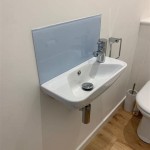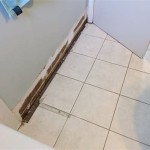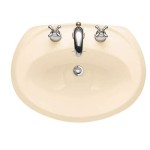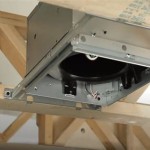Do I Need a Permit for a Second Bathroom?
Adding a second bathroom to your home can significantly enhance your living space, adding convenience and value. However, before embarking on this project, it is crucial to understand the legal requirements and potential permits needed for such a renovation. The need for a permit for a second bathroom varies depending on your location and the scope of the project. This article will explore the key factors determining whether a permit is required and highlight the importance of obtaining the necessary approvals.
Local Building Codes and Regulations
The primary factor determining the need for a permit is your local building codes and regulations. These codes are established to ensure public safety, structural integrity, and compliance with environmental standards. Each municipality has its own set of rules and regulations regarding bathroom additions. It is essential to consult your local building department for specific requirements in your area. Some jurisdictions may require a permit for any bathroom addition, regardless of its size or complexity, while others may have exemptions for minor renovations.
Scope of the Project
The scope of your bathroom addition project plays a significant role in deciding if a permit is required. Projects that involve major structural changes, such as adding a new room or altering load-bearing walls, often require a permit. These projects involve significant alterations to the building's structure and require professional inspection to ensure safety and compliance. However, smaller renovations like replacing fixtures, installing new tiles, or adding a vanity might not necessitate a permit. It's important to consult with building professionals to determine the specific requirements based on the proposed work.
Plumbing and Electrical Work
Bathroom additions often involve plumbing and electrical work, which may be subject to specific regulations. Installing new water lines, drainage systems, or electrical outlets can impact the building's infrastructure and require inspections to ensure proper installation and adherence to safety standards. In many cases, permits are required for any work involving plumbing and electrical systems. Failure to obtain the necessary permits could result in fines or legal issues.
Benefits of Obtaining a Permit
While obtaining a building permit may seem like an extra step, it offers several benefits that outweigh the potential inconvenience. Firstly, it ensures that your project meets the established safety standards and building codes. Inspectors will verify that the work is completed correctly, reducing the risk of safety hazards or structural issues down the line. Secondly, a permit provides legal protection for homeowners. Should any issues arise with the work, having a permit demonstrates compliance with regulations and can help resolve disputes. Lastly, a permit can add value to your property. A properly permitted and inspected bathroom addition will be considered a legitimate improvement, potentially increasing the home's resale value.
Consequences of Not Obtaining a Permit
Failure to obtain a permit for a bathroom addition can result in several consequences. If the work is discovered during a routine inspection or if a problem arises, homeowners may face fines, legal action, or even be required to demolish the unauthorized work. Additionally, the lack of a permit may also affect the property's resale value as potential buyers may be reluctant to purchase a home with unpermitted renovations.
Steps to Obtain a Building Permit
To obtain a building permit, homeowners typically need to submit a detailed application, including drawings and specifications of the proposed work. The building department will review the plans and may require additional documentation or inspections. They may also conduct a site visit to assess the existing conditions and ensure the project meets all zoning and code requirements. The permit process may take several weeks or months depending on the complexity of the project and the workload of the building department.
Conclusion
Adding a second bathroom to your home is a significant investment that can greatly enhance your living experience. To ensure a smooth and legal project, it is crucial to understand the permit requirements in your location. Consulting with your local building department and understanding the scope of your project will help you determine if a permit is necessary and guide you through the application process. Obtaining the necessary permits protects your investment, ensures safety, and adds value to your home.

Do You Need Permits To Remodel A Bathroom Sweeten Com

Do You Need A Permit To Remodel Bathroom 2024 Guide

Do You Need Permits For Bathroom Remodel What To Know In 2024 Badeloft

Do You Need A Permit In For Bathroom Remodeling

Do You Need Permits To Remodel A Bathroom

Do You Need Permits For Bathroom Remodel What To Know In 2024 Badeloft
Bathroom Remodel Permit Process When Why How To Acquire

Do You Need A Permit To Remodel Bathroom 2024 Guide

Do You Need A Permit To Remodel Bathroom Build Method Construction

5 Things To Consider Before Adding A Bathroom Your Home
Related Posts







